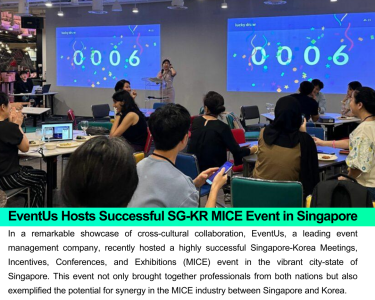
The past year has witnessed the rise of generative AI as a prominent buzzword, largely driven by OpenAI and ChatGPT, backed by Microsoft. This advancement not only raises societal and ethical questions due to its ability to generate diverse content from simple prompts but also unlocks countless business opportunities that were unimaginable just a year ago.
Venture capitalists (VCs) have been enthusiastically investing significant amounts of money into generative AI startups, some even establishing dedicated funds solely for this purpose. In recent news, Salesforce Ventures announced an increase in its generative AI investment fund from $250 million to $500 million.
In the midst of this landscape, a budding European startup named Versed is seeking to make its mark by enabling anyone to create their own text-based role-playing game (RPG) by writing stories and instructions. Versed claims that its AI can interpret the narrative and populate it with characters and locations from an internal database, resulting in immersive worlds.
Founded in the Netherlands just four months ago, Versed is the brainchild of CTO Cat Burton, a former Unity developer, and CEO Robert Gaal, an ex-Googler and serial entrepreneur. Over the past months, Versed has expanded its remote-first team to seven members spread across the United Kingdom, Denmark, Bulgaria, and the United States. In preparation for scaling its business from an early-alpha stage to a fully operational commercial product next year, the company announced today that it has secured €1.6 million ($1.7 million) in a pre-seed funding round led by Google’s Gradient Ventures.
Generative AI has already made strides in the gaming industry. Developers have demonstrated their capability to generate original visual assets, as exemplified by San Francisco-based Scenario, which recently raised $6 million in seed funding for that purpose. Additionally, gaming giant Roblox unveiled new tools that allow game developers to generate entire virtual worlds through natural language prompts. Microsoft is also working on incorporating generative AI capabilities into its immensely popular Minecraft franchise.
Although Versed’s approach may differ from these efforts, its endeavor to empower creators to develop complete RPGs through storytelling alone, without the need for coding, could take things to the next level.
“Our focus is not on developers like most of our competitors,” explained Gaal to TechCrunch. “We’re not emphasizing engineering or anything of that sort. We are creating a platform that allows users to make their own role-playing video games simply by writing a story. We utilize the story to generate fully immersive 3D worlds, complete with turn-based combat, branching dialogues, and everything that makes a role-playing game exceptional.”
To accomplish this, the writer describes the characters and their settings, including specific details like their costumes or the era (e.g., medieval) in which a scene is set. Versed then matches the description with visuals crafted by its own in-house artists.
Versed utilizes a combination of LLMs (Language Models) and proprietary algorithms to create a seamless match between assets and construct virtual worlds. The LLM’s primary function is to condense the creator’s game content descriptions, which are then utilized in conjunction with procedural generation techniques to build various locations and align them with the available assets in Versed’s internal library.
Although Versed currently relies on OpenAI’s GPT-4, Burton explains that their platform is designed to be adaptable, allowing for a smooth transition to other LLMs that may offer more suitable language models in the future.
“Due to the rapid evolution of LLMs and the frequent emergence of new advancements in the field, we have decoupled our system to seamlessly switch between different LLMs as they progress,” Burton clarified.
For gameplay implementation, Versed leverages the Unity game engine, enabling its games to be compatible with multiple platforms. However, initial gameplay availability will be limited to Mac and PC.
Immersive features are a key aspect of Versed, distinguishing it from platforms like Twine that have focused on facilitating text-based interactive fiction for the web. Burton emphasized, “We take it a step further by delivering a fully immersive 3D experience.”
Ultimately, Versed aims to eliminate the technical and design complexities of game development, effectively concealing the game engine in the background, allowing storytellers to concentrate on their core strengths.
“There’s always a significant entry barrier when it comes to using game engines. To build a game, one needs expertise in coding, art, audio, marketing, and editing,” Burton noted. “Our platform bridges that entire gap for individuals, empowering them to create a story similar to what they would do in tools like Twine, but with the added benefit of a fully immersive 3D game experience.”
TechCrunch had the opportunity to witness an early demonstration of a game developed using Versed, revealing the potential for a truly revolutionary approach to democratizing game development. The concept of “generative AI” aims to empower users, allowing them to create their own in-game assets instead of relying solely on pre-existing character and scene libraries created by Versed. While this capability is not yet achievable, it remains the ultimate goal. According to Burton, Versed’s focus initially lies in manually building its own assets, which will serve as the foundation for training its text-to-3D models.
The decision to create assets manually holds significant importance for multiple reasons, extending beyond establishing Versed’s unique identity and avoiding infringement on others’ intellectual property. The sheer scale of asset requirements makes it impractical to solely rely on manual creation, leading even giants like Shutterstock, a renowned stock photo provider, to embrace generative AI. Consequently, Versed intends to continue developing its own artwork while incorporating generative AI techniques.
Burton elaborated on Versed’s long-term vision, stating, “Our objective is to generate missing assets. We will always maintain our art team; that’s paramount for us. However, if someone writes a story and desires a three-headed dragon wearing a top hat—an asset we currently lack in our database—we aspire to create it for them.”
Target Market Versed’s primary focus is on creators who are already actively engaged in the realm of interactive storytelling, particularly those who may be seeking to transition from offline mediums to the digital space.
“We have chosen to prioritize role-playing games as our initial target because it is a well-established format for storytelling,” Gaal explained. “Many of the creators we are currently collaborating with are experienced gamemasters. They engage in activities such as live streaming on platforms like Twitch, selling their own board games, or publishing adventure novels that can be incorporated into board game experiences. Hence, it made perfect sense for us to begin here since these creators are already accustomed to writing for interactive storytelling—they just haven’t explored the digital format yet.”
One major consideration is the matter of the business model—how exactly does Versed plan to generate revenue? While the specifics are still being finalized, Gaal mentioned that they are leaning towards a subscription-based model. Gamers would subscribe to individual creators or specific types of adventures, with Versed taking a portion of the revenue.
“Our objective is to create a platform where our creators can sustain themselves,” Gaal emphasized. “We are committed to ensuring that creators can consistently release new adventures for players, whether it’s on a weekly or monthly basis. The content will be episodic in nature, aligning closely with how creators currently interact with their fanbase. This could resemble a weekly podcast or a monthly newsletter. Our aim is to stay in line with those existing practices.”
At present, Versed is collaborating with ten creators as part of an early alpha program. They plan to introduce their initial lineup of games around October, coinciding with the private beta launch at New York’s Comic Con. The full public launch is slated for the latter half of 2024.
In addition to their lead backer Gradient Ventures, Versed’s pre-seed funding round saw participation from Cherry Ventures, a Berlin-based investor, as well as individual investors with affiliations to companies such as Unity, Twitch, Remote, and Framer.





